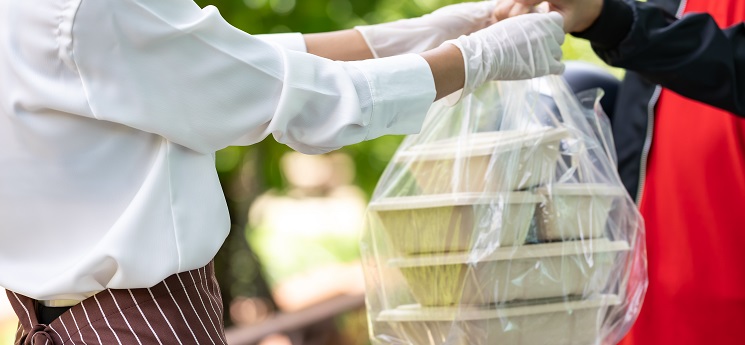A supermarket behemoth is testing a BYO container system for select products as part of its campaign to cut down on plastic packaging and reduce waste sent to landfill.
Coles customers will be able to take their own containers and fill them with ‘scoop and weigh’ products such as washing detergent, face wash, shampoo, coffee, and olive oil.
Michael Vidor, founder of sustainable consumer products company Urban Ethos, told the Financial Review he welcomed the Coles initiative, but says ambitious sustainability targets announced prior to World Environment Day (4 June) by Coles, Woolworths, Aldi and their top suppliers were “aspirational rather than achievable”.
The retailers and most of their big suppliers have also signed the ANZPAC Plastics Pact that aims to make all plastic packaging reusable, recyclable or compostable in four years.
“It’s hugely encouraging they’re getting the message, it’s great that they’re wanting to make the change, it’s great that they’re putting in place the various initiatives in their businesses to do it,” said Mr Vidor.
“But to make really meaningful change on the scale they’re indicating will take a bit more time … than they’re indicating,” he said.
Mr Vidor stopped short of accusing them of ‘greenwashing’, but doubted the infrastructure required does not yet exist.
“We’re at the beginning of that journey, not halfway down the path, and I’m hoping in the next five to 10 years we’ve come full circle and we have a proper recycling infrastructure in Australia.”
Thinus Keeve, Coles’ chief sustainability, property and export officer, admits some of the plastics his company is using now are not currently recyclable in Australia. He says “significant capital investment that is happening up the chain” over the next five years will “see that move significantly”.
Coles and Woolworths have announced they aim to switch to 100 per cent renewable energy by the end of 2025.
What is greenwashing?
Business News Daily says greenwashing is when a company or organisation “spends more time and money on marketing themselves as environmentally friendly than on minimising their environmental impact”.
“It is a deceitful advertising gimmick intended to mislead consumers who prefer to buy goods and services from environmentally conscious brands.”
It cites oil company Chevron, which released expensive TV and print ads broadcasting its environmental dedication despite “actively violating” anti-pollution legislation and spilling oil into wildlife refuges.
Philip Beere, vice-president of marketing at Sightline Payments, says the “No. 1 violation” is embellishing the benefit of the product or service. While he believes greenwashing usually results from overenthusiasm rather than malicious plots to deceive, marketers are tempted by reports that 66 per cent of consumers would spend more on a product they perceive to be sustainable.
Sociologist Leyla Acaroglu has written that greenwashing is not only misleading, but also worsens environmental problems because it “often sucks up airtime and misdirects well-intentioned consumers down the wrong path”.
An initiative that might help major supermarkets reach their sustainability targets and which is being championed by the World Economic Forum, is a campaign against food waste. Tech start-up Wasteless is targeting food waste with AI to give retailers dynamic rather than fixed pricing for perishable food products. Co-founder Oded Omer argues that customers can be incentivised by reducing prices the closer a product gets to its ‘best-before’ date.
“A Spanish retailer ran a pilot with Wasteless and reported a nearly third less (32.7 per cent) overall waste,” the World Economic Forum website reports.
“Wasteless says its machine learning algorithms are developing all the time and are on track to hit an 80 per cent reduction in food waste. That, of course, means higher revenues.”
UN Sustainable Development Goals aim for 50 per cent less food waste by 2030.
Read more: How to fight litter where you live
Deadly sins of greenwashing
Futerra’s 2015 Selling Sustainability Report identified marketing tactics to avoid:
- Fluffy language: Words or terms with no clear meaning (e.g. eco-friendly).
- Green products vs dirty company: For example, efficient light bulbs made in a factory that pollutes rivers.
- Suggestive pictures: Images that give an (unjustified) green impression (e.g. flowers blooming from exhaust pipes).
- Irrelevant claims: Emphasis on one tiny green attribute when everything else is anti-green.
- ‘Best-in-class’ boasts: Declaration that you are slightly greener than the rest, even if the rest are pretty terrible.
- Designations that are just not credible: For instance, the “greening” of a dangerous product to make it seem safe. (“Eco-friendly” cigarettes, anyone?)
- Gobbledygook: Jargon and information that only a scientist could check or understand.
- Imaginary friends: A label that looks like a third-party endorsement … except it’s made up.
- No proof: A claim that could be right but has no evidence.
- Outright lies: Totally fabricated claims or data.
Read more: What can go in the compost bin?
How to shop sustainably (zerowastevictoria.org.au)
- Prior to purchasing anything, ask yourself ‘Do I need it?’ If the answer is ‘no’, don’t buy it. If the answer is ‘yes’ move on to the next step.
- Can you alleviate this need by repairing an existing item?
- Can you borrow/lend the item or buy it second hand?
- Is there a package free option?
- If you can’t get it package free, can and would you reuse the packaging?
- If you can’t get it package free, is the packaging minimal and made from recycled materials?
- Can you recycle the packaging or compost it at home at the end of its life?
- Is the product sourced ethically?
- Is there a local option available?
Read more: What can go in the compost bin?
Do you believe the environmental claims of large companies? Have your say on greenwashing in the comments section below.
If you enjoy our content, don’t keep it to yourself. Share our free eNews with your friends and encourage them to sign up.

